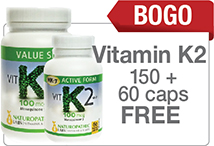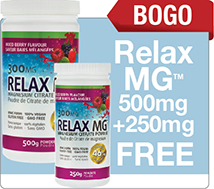Carotenoids Food Sources
Updated Dec. 14th, 2023 | Read Time: 2 Minutes | What You Will Learn:
- What Are Carotenoids?
- What Do Carotenoids Do?
- Types of Carotenoids
- Beta Carotene
- Lycopene
- Lutein and Zeaxanthin
- Astaxanthin
- Taking Carotenoids As A Supplement
- Important Information
What Are Carotenoids?
Carotenoids are a class of compounds that are produced in the chloroplasts of some plants, bacteria, algae and fungae. Since these molecules absorb light in the blue spectrum, foods containing them often appear yellow, orange, or red. Interestingly, this blue light easily excites other molecules to form free radicals, so by absorbing it, carotenoids act as antioxidants.
Science has not yet discovered all of the carotenoids, although over 600 have been identified so far. Two major classifications are carotenes, an oxygenated form of carotenoid, and xanthophylls, which do not contain oxygen. Common xanthophylls are astaxanthin, lutein and zeaxanthin. The most well-known carotenes are lycopene and beta-carotene. Beta-carotene is the only carotenoid mentioned in this article that can be converted to vitamin A in humans.
What Do Carotenoids Do?
The function of each carotenoid is different, although each can be considered as an antioxidant that helps to protect the body against the damage caused by free radicals. The more common ones are involved in eye and vision health, as well as the prevention of cancer and the visible signs of aging.
Types of Carotenoids
Beta Carotene
Beta-carotene is converted to vitamin A in the liver and is often used instead of vitamin A supplementation to avoid potential toxicity. The remaining beta-carotene that is not converted to vitamin A by the liver is a free radical scavenger (antioxidant).
Lycopene
Lycopene is the carotene pigment molecule that gives ripe tomatoes their bright red colour. It is a potent antioxidant with affinity for the prostate gland that may help lower the risk of unhealthy cell growth.
Lutein and Zeaxanthin
Lutein and zeaxanthin work in the eye as antioxidants. Studies show that lutein and zeaxanthin protect the eye from damage and can reduce the incidence of eye diseases such as macular degeneration and cataracts.
Astaxanthin
This red pigment molecule is responsible for making shrimp and lobster change colour when they are cooked. It is a strong antioxidant and plays a role in protecting the eye, heart, and liver as well as preventing diabetes, metabolic syndrome, and neurodegenerative diseases such as Parkinson's and Alzheimer's.
Taking Carotenoids As A Supplement
The carotenoids are most effective when taken together in a complex, likely because this is how they exist in food. It is recommended to use a natural beta-carotene or carotenoid complex for the best results. Some companies extract natural carotenoid complex from sea algae, to create a product called "Betatene".
Important Information
Absorption of carotenoids is inhibited by some medications including colchicine, mineral oil and some cholesterol-lowering medications. Most carotenoids have not been tested for supplementation use during pregnancy or lactation, because of this it is recommended that these women limit their intake to dietary sources.






















